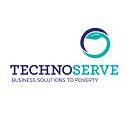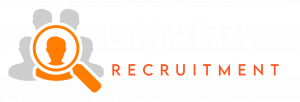
TechnoServe works with enterprising people in the developing world to build competitive farms, businesses, and industries. We are a non-profit organization that develops business solutions to poverty by linking people to information, capital, and markets. Our work is rooted in the idea that given the opportunity, hardworking men and women in even the poorest places can generate income, jobs, and wealth for their families and communities. With more than four decades of proven results, we believe in the power of private enterprise to transform lives.
We are recruiting to fill te position below:
Job Title: Ogun State Dairy Value Chain and Market Study Consultant
Requisition Number: OGUNS002638
Location: Ogun
Job type: Part-time
Job Category: Consultant
Period of Performance: The assignment is expected to begin from July 2022 to August 2022.
About Technoserve and Background of the Study
- TechnoServe works with women and men to build regenerative farms, businesses, and markets that increase incomes, contribute to prosperity in developing countries, reduce poverty, and increase resilience among project clients and their communities.
- Many of TechnoServe’s clients are smallholder farmers in agricultural value chains, who see improved incomes as a result of higher yields, improved access to markets and inputs, and better prices.
- Nigeria’s dairy market is dominated by imported milk produced from reconstituted milk powder from Europe, the United States of America, South Africa, India, Australia, Ukraine, and New Zealand, among others.
- The imported milk differs in taste, nutrient profile, and flavor compared to fresh milk. Nigerian milk contribution to local demand is mainly supplied by Fulani dairy farmers. Ogun state is among states in Nigeria’s southwest region with substantial contribution to the share of local production. Increasing local milk production in Ogun state requires an adequate understanding of the dairy market in Nigeria, especially, in Ogun state.
Overall Objective
- The overall objective of the study is to conduct a dairy value chain and market assessment in Ogun state of Nigeria, to provide an understanding of the structure, limitations, and potential of the dairy market in the state.
- The study will also assess the risks associated with developing dairy and cereal (for feed) farms in the state.
Specific outcomes of the Study
The following are some specific outcomes including but not limited to the following;
- An overview of the Nigeria Dairy market. In this, the consultant will provide data on Dairy market size and dynamics (Production: volume/ number of farmers/ trends, growing, consumption), a brief competitive landscape review, and Dairy farming in Nigeria (what type of infrastructure/ typical cows’ yield? most advanced region?
- An Overview of the dairy sector in Nigeria in general and the situation of Ogun state in particular. On this, the consult will seek to provide answers to the following questions; Weight of Ogun State vs. Country dairy production power? (volume/ average size of farms/ development/ key stakeholders/ potential co-financiers?), Risk assessment of developing dairy farming vs. cereal farmers, Analysis of big players already on the ground, Zoom on existing infrastructure in the state (roads/ electricity/ internet coverage/ cold chain management/ climate (incl. water access)/ Milk collection centers?).
- The State of the Dairy Value Chain in Ogun State of Nigeria. Here, the consultant will focus on addressing the following;
- Analysis of milk producers. The following questions will guide this analysis; the number of dairy farmers in Ogun State (analysis split by Fulani vs. non-Fulani).
- A typical dairy farm in Ogun State (numbers of cows, land surface, feed/fodder/pasture production (types, quantity, production system, producers, reasons for production, production period, duration of each per year, storage options etc), number of employee if any?
- The typical profile of a farmer (age/sex/education/average number of people in a dairy household/ reason for engaging in milk production. What kind of mindset are the milk producers in? are they willing to improve processes? Are they willing to participate in training? How would they like to be trained? Are they willing to professionalize their farming activity (openness to innovation & digitalization)? What are the various dairy production systems in the states (Grazing/ semi-intensive or intensive (zero-grazing)? What type of stables are used? What are the materials used in stable construction?
- Milk production. What are the various breeds of milking cows used, and the average liters of milk produced per cow per breed (morning and evening production per day)? The data should be disaggregated by Fulani and non-Fulani owned.
- What is the average price per liter of milk? What are the monthly production trends (showing the pick period of milk a year? What factors influence milk production and what is the seasonal calendar for dairy production in the state? Are there some imported breeds? If yes what breeds, where is the country of origin, and what are the cost of imported breeds and the cost of importing from each country.
- Which feed/fodder/pasture is most used? Some imported feed? How accessible is it (does it go through a trader?) At which price can the farmers access the feed? What are the types of alternative feed? What are the challenges of accessing feed/fodder/pasture?
- Farmer organization systems. The study will be concerned with; are there milk cooperatives or dairy farmers’ associations in the state? If so, how is this organized? What is the dairy farmers’ population density in the states (number of dairy farmers in close location = cluster)? How many clusters could be built in Ogun State (amount of farmers/ number of cows and average yield per cluster?), Distance between these clusters? (Ideally, build a map), Distance from locations to Fan Milk Danone Dairy Farm Odeda).
- Local produced the dairy project and price margin. What do the farmers use the milk for today? Are they selling it (if so to who? At what kind of price?) or only own consumption? What is the milk price today? How big are the variations?
- What would the farmers like to do with their milk? What would be the right price for 1L of milk? Do the farmers have other sources of revenue? (How much do they earn today vs. median salary or poverty line?).
- Are farmers better off selling fresh milk or processed products in the short and long-run?
- Key Challenges within the value chain. The study should summarize the challenges and potential challenges in the dairy sector around the following; a. Management issues (husbandry challenges), b. Feed issues (feed/fodder/pasture), c. Health care issues (diseases, vet challenges, access to medication and extension visits etc), d. Milk yield issues (potential yield vs actual yield, milk quality, storage, cottage handling, contamination), e. Milk market/Customer issues, f. community issues, g. Mortality rate among others.
- Main Opportunities. The study should highlight the main opportunities in the dairy value chain for all value chain actors per actor in the value chain.
Deliverables:
- Selected consult will provide an Inception report detailing the methods, tools, calendar, and reporting plan for TechnoServe for approval.
- The consultant prepares the research protocol for human subject review by the appropriate Institutional Review Board’s validation.
- Desk-review report: A synthesized report of the desk research on Nigeria’s dairy market, with a focus on Ogun State.
- Data collection instruments: Based on findings from the desk review, and scope of work, develop a data collection procedure, and instruments are shared with key stakeholders for review.
- Presentation of key findings and analysis: Preliminary findings and analysis are presented to key stakeholders for review and feedback.
- Draft narrative report: A report synthesizing all feedback from the presentation of findings and analysis as well as the desk review is compiled and shared for additional feedback.
- Final report and presentation: A final narrative report incorporating the feedback from the draft report and a PowerPoint presentation summarizing the narrative report is shared.
Consultant Qualifications
- A minimum of Master’s Degree in Agricultural Economics, Agribusiness, or related field with five (5) years related research experience.
- Demonstrable understanding of the dairy sector in Nigeria with knowledge of the current issues. Familiarity with Ogun state is a plus.
- Strong qualitative and quantitative data analysis skills using STATA, SPSS, and Excel.
- Strong presentation skills using MS PowerPoint or related software
- Demonstrable communication and report-writing skills
- Excellent command of the English Language. Knowledge of the local language, an added advantage.
- Strong knowledge and application of data quality tools and approaches
- Ability to manage a remote team and adhere to timelines for deliverables in a remote work setting.
- Demonstrable leadership skills.
- Ability to manage short-term assignments including scope and timelines.
Application Closing Date
4th July, 2022 at 05:00pm.
Method of Application
Interested and qualified candidates should:
Click here to apply online
Note: TechnoServe encourages diversity in all levels and across all facets of our organization. We are proud to be an equal opportunity employer and do not discriminate on the basis of gender, race, colour, ethnicity, religion, sexual orientation, gender identity, ages, HIV/AIDS status, protected veteran status, disability and all other protected classes.
